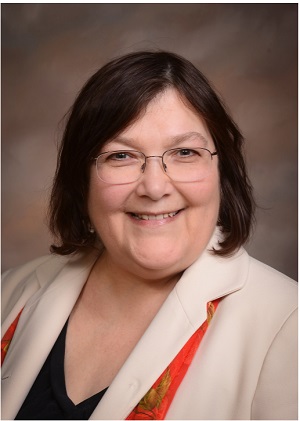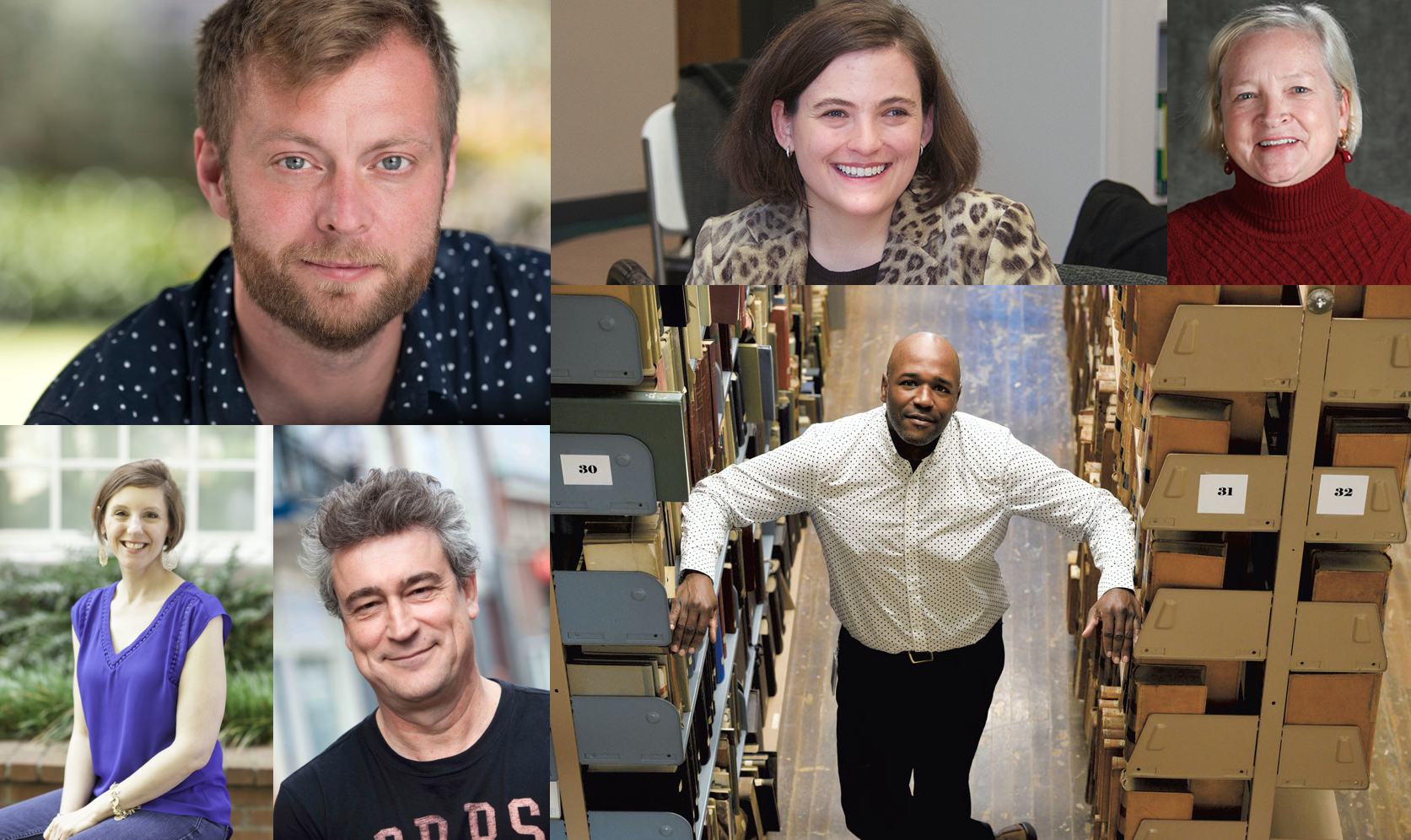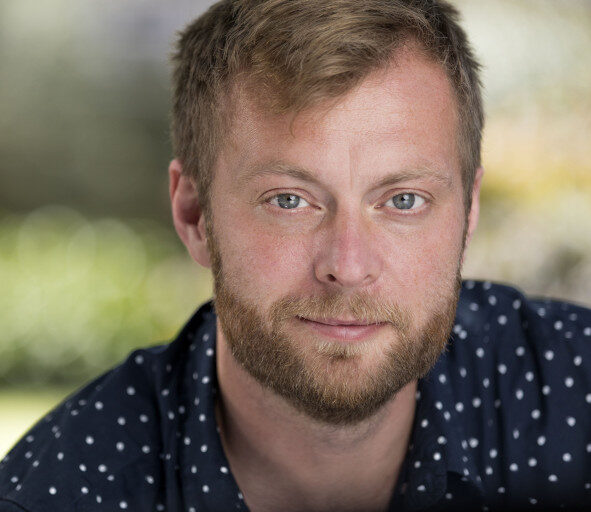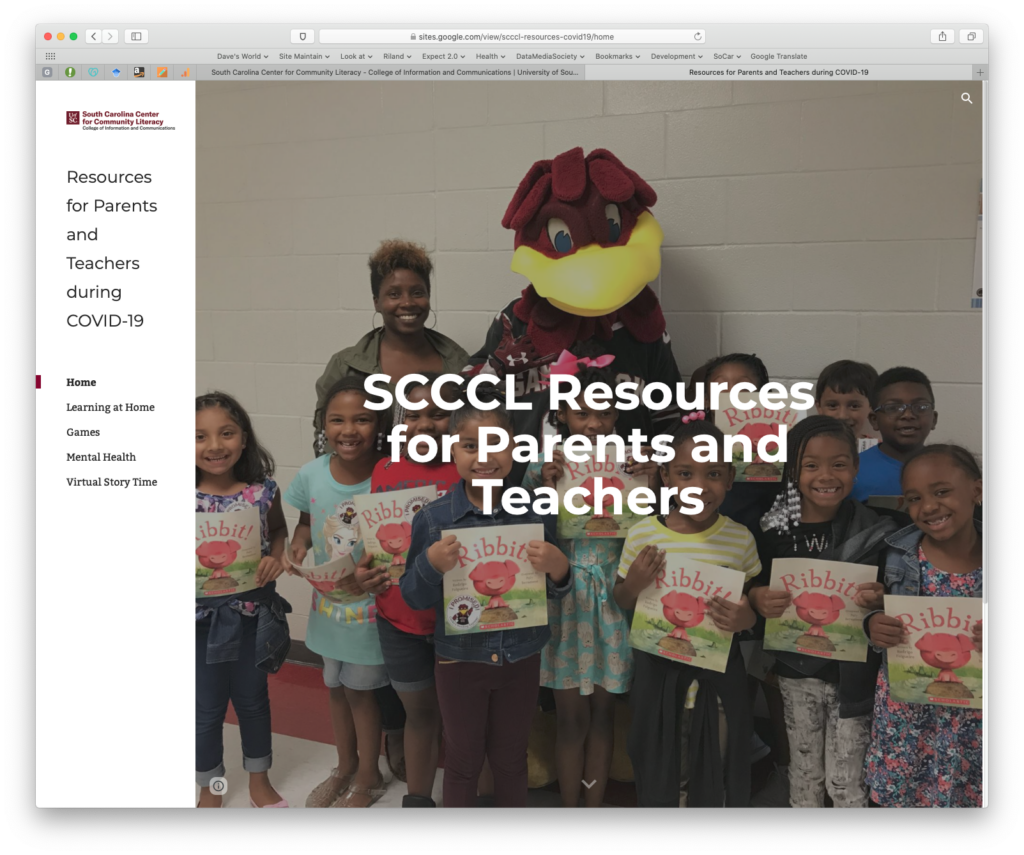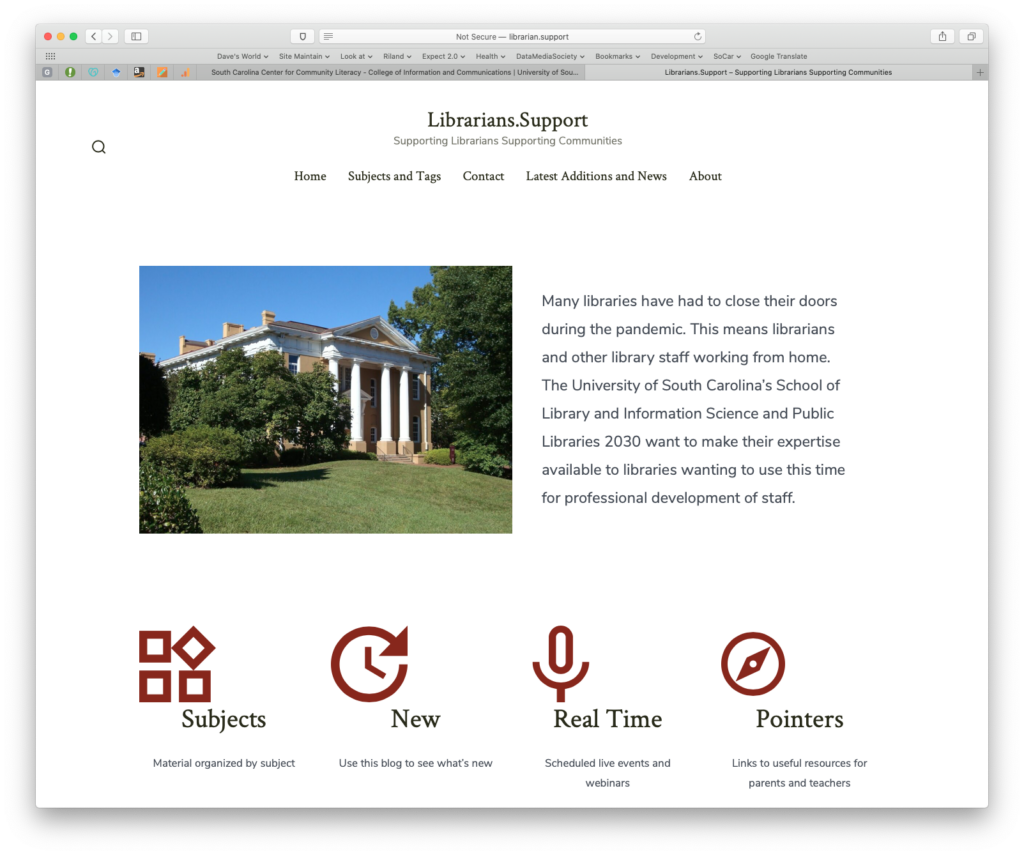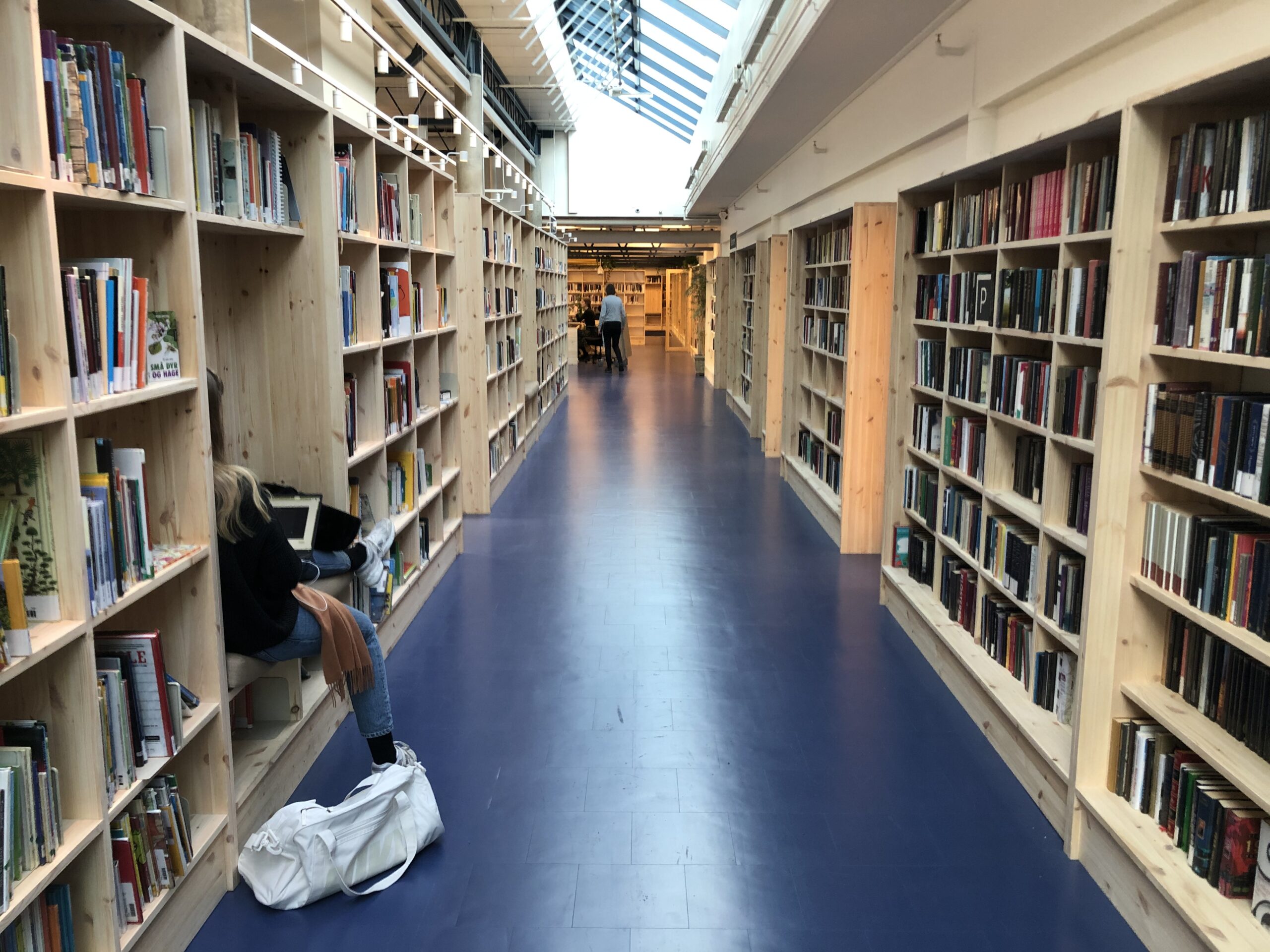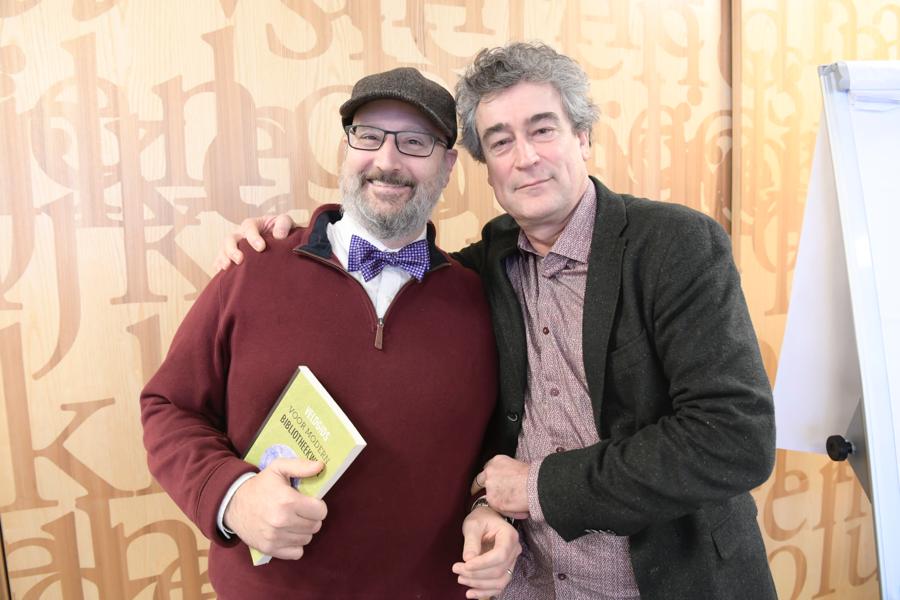Carol Perryman is Associate Professor, School of Library and Information Studies. She and I share a strong interest in community and librarianship. In reading my post today on community and isolation she had some great thoughts and reactions. I am sharing them here with her permission.
A touch on the shoulder is just one element (though important) of our interactions. We connect in so many other ways. Because of this, consideration of how shifted awareness, focused on additional elements of interactions, can be used to enhance online learning seems important in thinking about improving online learning (or even considering what it might add that isn’t available in person).
I spent several years working in Second Life as a consumer health librarian, paid by a series of NLM grants, and learned much about trust and our connections. Groups there, such as the global gathering of people diagnosed with AIDS/HIV, established communities using avatars. In talking over years with others I consider ‘instinctive sociologists’ – natural, curious observers of human behavior – we observed that even online, when another person joined our discussion, we adjusted our social distance to accommodate the added person.
In an asynchronous health support forum focused on smoking cessation, smaller communities within the very large one (over 100,000 members) emerged, and our relationships grew to include far more than smoking cessation. In fact, 20 years after I quit smoking, I am still part of one smaller group that first met in the forum. Children not yet conceived are now adults. Our number includes attorneys, nurses, a magazine editor, an artist/graphic designer, a 7/11 clerk in a small town; we have lost members to cancer. And we have met in person, many of us.
We understand that it’s difficult to convey feeling in email, but our written words convey signals of affiliation. In the absence of expected signals, people will often ask outright for gender information, for example. We want to belong and to understand where others fit in our worldview.
In online education, it does seem likely that community-building is more difficult. Our alliances are enforced by circumstance outside ourselves, temporary, and subject to evaluation. All performance is assessed. But this is also true in person. To think that students are not aware of power inequalities (or that similarly, staff and faculty and administrative personnel are not equally so) is wishful thinking.
What are the differences between the communities established in Second Life and an asynchronous health support forum, and online learning?
One is self-agency: In Second Life and QuitNet, people entered the space on a purely voluntary basis. They were free to perform their functions to the chosen extent – interact or not, disclose what they felt comfortable with disclosing. I entered Second Life as a paid consumer health librarian, deliberately exploring how virtual roles and spaces could be sites for library roles.
Another is trust-building, our understood social contract, and the understanding of our virtual-space selves. When I interacted with people in the health support forum, it was always with an awareness of my role. For example, I considered how I could build trust with a carefully constructed appearance and with transparency: people knew my real name and role. I had a central identified purpose. Interestingly, not everyone had this kind of awareness. In fact, in Second Life, one avatar active in the library community had a habit of coming on to women in a very crude way. He and others somehow drew a line between ‘real world’ selves and represented personas, persuading themselves that trust was somehow different online.
Purpose is an element: In the smoking cessation community, all entered (I presume) with that central purpose in mind, and personas were built around that core over some length of time, based upon readiness to interact and trust. That length of time, together with self-agency, may be important in understanding differences between in-person and online communities. One semester in terms of trust-building isn’t long. It seems likely that the additional social cues we get from our in-person connections, even just for one semester, support our interactive community-building. Even in person, however, not all community members feel an equal amount of ease, or trust. There are always those who sit in the back of the class.
Speaking more generally, we have been shifting from an entirely in-person world to one in which our lives span time and space (the final frontier!). Remember Max Headroom, the TV showed that tested our awareness of what was real and what was not; our discomfort (the ‘uncanny valley’) with robotic simulations of human life? How about social media trolls, who use their anonymity to harass others and excite controversy?
I believe we are still traveling along a path of how we trust, as well as how we understand our asynchronous, temporary connections. There’s probably lots more to be said about this, and others have done so far better.
None of these speculations offer answers to the question of improving online education. However, an awareness of the unique benefits and risks we take on in different settings may offer clues.

